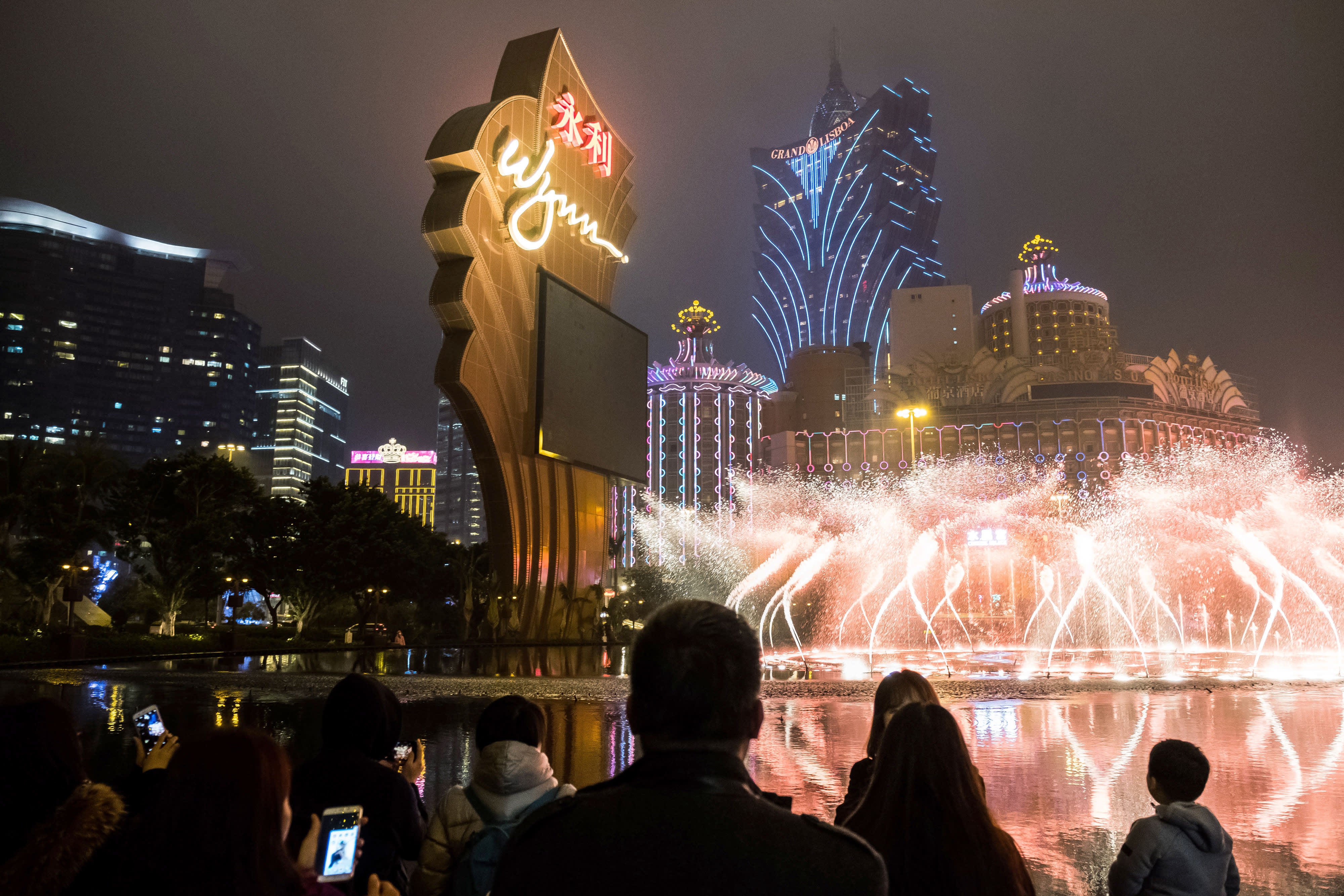
People use mobile devices to take photographs of a fountain outside the Wynn Macau casino resort, operated by Wynn Resorts Ltd., in Macau, China, on Tuesday, Jan. 30, 2018.
Billy H.C. Kwok | Bloomberg | Getty Images
(This article was sent first to members of the CNBC Investing Club with Jim Cramer. To get the real-time updates in your inbox, subscribe here.)
Shares of Wynn Resorts (WYNN), along with other Macao casino operators, are falling Monday, and the declines are not all about concerns related to the omicron variant. The group is sinking after the CEO of Suncity, the region’s largest junket operator, and ten other people were arrested over the weekend in an investigation into an illegal gambling and money-laundering syndicate.
Junket operators work with the casinos to bring in high-roller, VIP customers and are also responsible for extending credit and collecting debts. The news is certainly a blow to a Macao gaming industry that was already grappling with headwinds stemming from increased regulatory scrutiny and the uneven recovery from the pandemic. But it’s important to note that the Macao gaming industry isn’t as reliant on VIP customers as it once was.
Junkets not as important anymore
In the back half of 2019, junkets represented less than 15% of Wynn Resorts’ EBITDA, and Suncity was about one-third of the junket business, according to the company. This is a manageable exposure, in our view. Wynn’s junket exposure may continue to fall, as the company executes on a strategy that favors the higher-margin premium mass market over VIPs. This shift was discussed on the company’s third-quarter earnings call.
“So over the last three years, we’ve been pivoting luxury assets that were formally taken up by junket operators. And we’ve been opening them up for premium mass, whether it’s villas in our towers, high-end fleets, and general gaming spaces. And we are fortunate to have the best assets and best service in market. So the pivot is very, very straight forward for us,” Ian Coughlan, President & Executive Director of Wynn Macau Limited, explained on the conference call.
Loading chart…
While the news may have more of an impact on sentiment in Macao than earnings, you can’t forget about Wynn Resorts’ domestic interests at the current price level. In a November 9th note by Deutsche Bank, the analysts (who have a $131 price target on WYNN) said the value of the company’s domestic portfolio was worth about $70 per share on a sum-of-the-parts basis, while the value of Wynn’s stake in Macao was worth about $61 per share.
We think the value of Wynn’s domestic business is rock solid. The company’s properties in Las Vegas and Boston are currently delivering record amounts of adjusted EBITDA, and Wynn Interactive is pivoting its business model towards a more targeted ROI-focused strategy. If Deutsche Bank is accurate in their view in that the domestic business is worth $70 per, then we can make the argument that the Macao business has been discounted to a point where there is not much room left for further downside.
Bottom line: Patience required
We may not be adding to our position on today’s declines, but we are not selling either due to our belief that a lot of bad news about Macao is in the stock with it trading in the low $80s. A lot of patience and a stomach for volatility is still required due to ongoing COVID-19 related restrictions in Macao, but we are willing to wait this one out thanks to our long-term investment horizon.
The CNBC Investing Club is now the official home to my Charitable Trust. It’s the place where you can see every move we make for the portfolio and get my market insight before anyone else. The Charitable Trust and my writings are no longer affiliated with Action Alerts Plus in any way.
As a subscriber to the CNBC Investing Club with Jim Cramer, you will receive a trade alert before Jim makes a trade. Typically, Jim waits 45 minutes after sending a trade alert before buying or selling a stock in his charitable trust’s portfolio. If the trade alert is sent pre-market, Jim waits 5 minutes after the market opens before executing the trade. If the trade alert is issued with less than 45 minutes in the trading day, Jim executes the trade 5 minutes before the market closes. If Jim has talked about a stock on CNBC TV, he waits 72 hours after issuing the trade alert before executing the trade. See here for the investing disclaimer.
(Jim Cramer’s Charitable Trust is long WYNN.)




